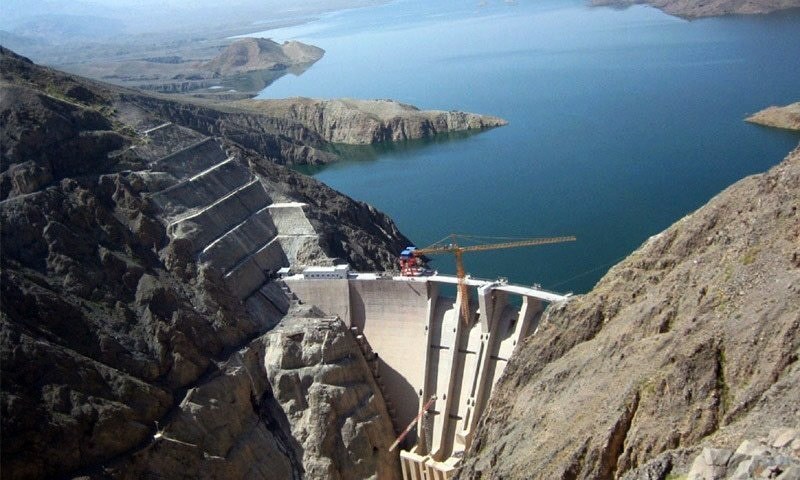ISLAMABAD: The World Bank’s board of directors has approved a $700 million additional financing for 250km transmission line of the Dasu Hydropower Project to be completed by December 2023.
This was announced by the World Bank at a time the government is seeking about $1.2 billion support from the bank through diversion of surplus or unutilised funds from slow-moving projects to meet additional funding requirements to mitigate adverse impacts of coronavirus threat.
The board of directors of the World Bank is scheduled to approve about $200 million quick disbursing loan for Pakistan on Thursday.
The additional financing for Dasu Transmission Line (DTL) has, however, nothing to do with Covid-19 and has been under negotiation for almost a year. The funding is targeted “to help Pakistan generate low-cost, renewable energy to provide affordable electricity supply to millions of users,” a World Bank statement said.
The additional financing for Dasu Hydropower Stage I Project will finance the 250-km, 765 kilovolt transmission line to complete the first phase of the Dasu hydropower plant that will install 2,160MW capacity along the main Indus River. It will be a high voltage alternative current (HVAC) double circuit line from the Dasu project to West Grid Station, Islamabad.
The financing has nothing to do with Covid-19 and has been under negotiations for almost a year
The proposed DTL will require 674 towers, of which 217 will be angle towers and the remaining suspension towers. The average size of each tower footing will be 400 square metres. The average height of each tower will be about 83m. The right of way (RoW) of the DTL will be 80m wide. The section of DTL runs through eight districts, i.e., Upper Kohistan, Lower Kohistan, Shangla, Battagram, Mansehra, Haripur, Abbottabad, and Attock.
Two Kohistan districts have six union councils and 28 villages along the alignment; Shangla district has four union councils and 18 villages; Battagram district has nine union councils and 32 villages; Mansehra district has eight union councils and 22 villages; Haripur district has seven union councils and 22 villages; and the Attock district has four union councils and 13 villages through which the transmission line is passing, according to National Transmission and Dispatch Company (NTDC).
“Pakistan’s energy sector is aiming to move away from high-cost and inefficient fossil fuels towards low-cost, renewable energy to power the national grid,” said Illango Patchamuthu, the World Bank Country Director for Pakistan.
“Along with reforms in the tariff structure, the Dasu Hydropower Project will result in fewer imports of fossil fuels, alleviating the stress on the country’s current account balance.
“The Dasu hydropower plant has a low environmental footprint and is considered to be one of the best hydropower projects in the world,” said Rikard Liden, Task Team Leader for the project. “It will contribute to reducing Pakistan’s reliance on fossil-fuels and producing clean renewable energy.”
Dasu hydropower station will produce electricity at $0.03/kWh compared to Pakistan’s current average cost of electricity generation of $0.08/kWh. This investment in the energy sector is an important step in the country’s path towards becoming an upper middle-income country by 2047.
The project will be financed from the International Bank for Reconstruction and Development (IBRD), with a variable spread and 25 years maturity including a 5-year grace period.
The World Bank funding is part of its Country Partnership Strategy for FY2015-2020 for Pakistan with four priority areas of engagement in energy, private sector development, inclusion, and service delivery. The current portfolio has 46 projects with a net commitment of $9.1 billion.
The Water and Power Development Authority (Wapda) had in November 2019 signed a Rs52.5 billion contract with a joint venture of General Electric Hydro China and Power China Zhongnan Engineering Corporation for electro-mechanical works of the Dasu hydropower project (stage-I). This covers design, supply and installation of six Francis turbines, generators, main transformers and generator and station service switchgear, along with related equipment.
The overall Dasu project has an estimated cost of about Rs510bn hydropower project. The 4,320MW hydropower project is being constructed by Wapda on the Indus upstream of Dasu town in Kohistan district of Khyber Pakhtunkhwa. The project will be completed in two stages — each stage having a generation capacity of 2,160MW.
Published in Dawn, April 2nd, 2020
















































